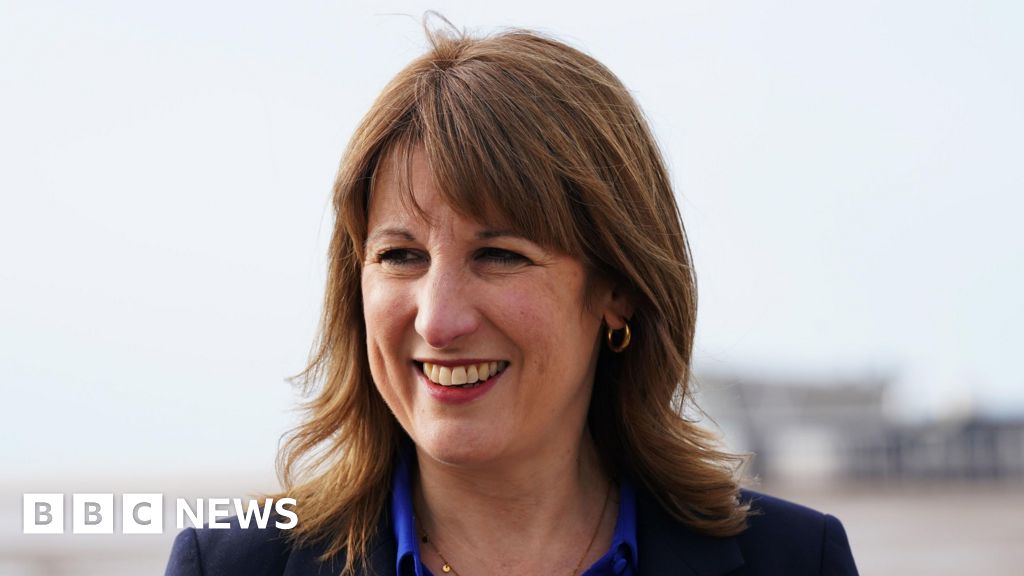Business
Reeves to guarantee paid work for young people unemployed for 18 months

Read more on post.
Young people who have been out of a job or education for 18 months will be offered a guaranteed paid work placement, Rachel Reeves is set to announce.
Those who do not to take up the offer could face being stripped of their benefits.
In her speech to Labour’s annual conference in Liverpool, the chancellor will promise “nothing less than the abolition of long-term youth unemployment”.
Reeves is also expected to make the case for a society founded on “contribution”, where “hard work is matched by fair reward”.
It comes ahead of November’s Budget, with the chancellor under pressure to balance the public finances, while also boosting economic growth.
The scheme builds on a “youth guarantee”, announced last November, which promised every 18 to 21-year-old in England access to an apprenticeship, training, education opportunities or help to find a job.
Under the new initiative, every young person who has been on Universal Credit for 18 months without “earning or learning” will be offered a guaranteed paid work placement.
Those who refuse to take up the offer without a reasonable excuse will face sanctions such as losing their benefits.
The aim of the placements would be to help people build up the skills to get a full-time job.
An estimated one-in-eight 16-24-year-olds are not currently in education, employment or training – around 948,000 people – according to the latest figures.
The numbers hit an 11-year high of 987,000 at the end of last year.
The new scheme will build on existing employment support and work placements delivered by the Department for Work and Pensions.
It will work with private companies, with the government anticipating businesses would cover at least some of the wages for job placements.
The government has not given a figure for the cost of the scheme but it will be funded from existing budgets set out in the spending review earlier this year.
Full details will be set out in November’s Budget, when the chancellor sets out the government’s tax and spending plans.
Reeves is facing a difficult Budget, with economists warning tax rises or spending cuts will be needed for the chancellor to meet her self-imposed borrowing rules.
In her conference speech, the chancellor is expected to say: “I will never be satisfied while too many people’s potential is wasted, frozen out of employment, education, or training. There’s no defending it.
“It’s bad for business, bad for taxpayers, bad for our economy, and it scars people’s prospects throughout their lives.”
She will add: “Just as the last Labour government, with its new deal for young people, abolished long-term youth unemployment I can commit this government to nothing less than the abolition of long-term youth unemployment.”
The announcement was welcomed by the Federation of Small Businesses as “hugely important”.
The group’s policy chair, Tina McKenzie, said: “Reprioritising spending from employment programmes which aren’t working to this type of scheme is exactly the way to get much-needed bang for taxpayer cash.”
She added: “Key to getting the details right is making sure there is a backstop offer to those who are now over-25, particularly those with health challenges; that young people out of work for health reasons are not excluded through misguided double funding rules; and that small businesses are enabled to play a full role in the delivery of the scheme.”
However, there are questions over whether businesses facing pressures including increases in National Insurance Contributions and the National Minimum Wage would be able to take on large numbers of new workers.
The number of job vacancies in the UK has been falling, hitting their lowest level since the pandemic earlier this year.
In her speech, Reeves will also set out her belief in a “Britain based on opportunity”, where “ordinary kids can flourish, unhindered by their background”.
“I believe in a Britain founded on contribution – where we do our duty for each other, and where hard work is matched by fair reward,” she is expected to say.
It comes after the influential think tank Labour Together published a report last week arguing the government should put the idea of “contribution” – that if you pay in to the system, you should be able to see what you get out of it – at the heart of its agenda.
The chancellor will also pledge to fund a library in every primary school in England.
Around one-in-seven state primary schools in England – roughly 1,700 – do not have a library, according to figures from the National Literacy Trust, rising to one-in-four for disadvantaged areas.







